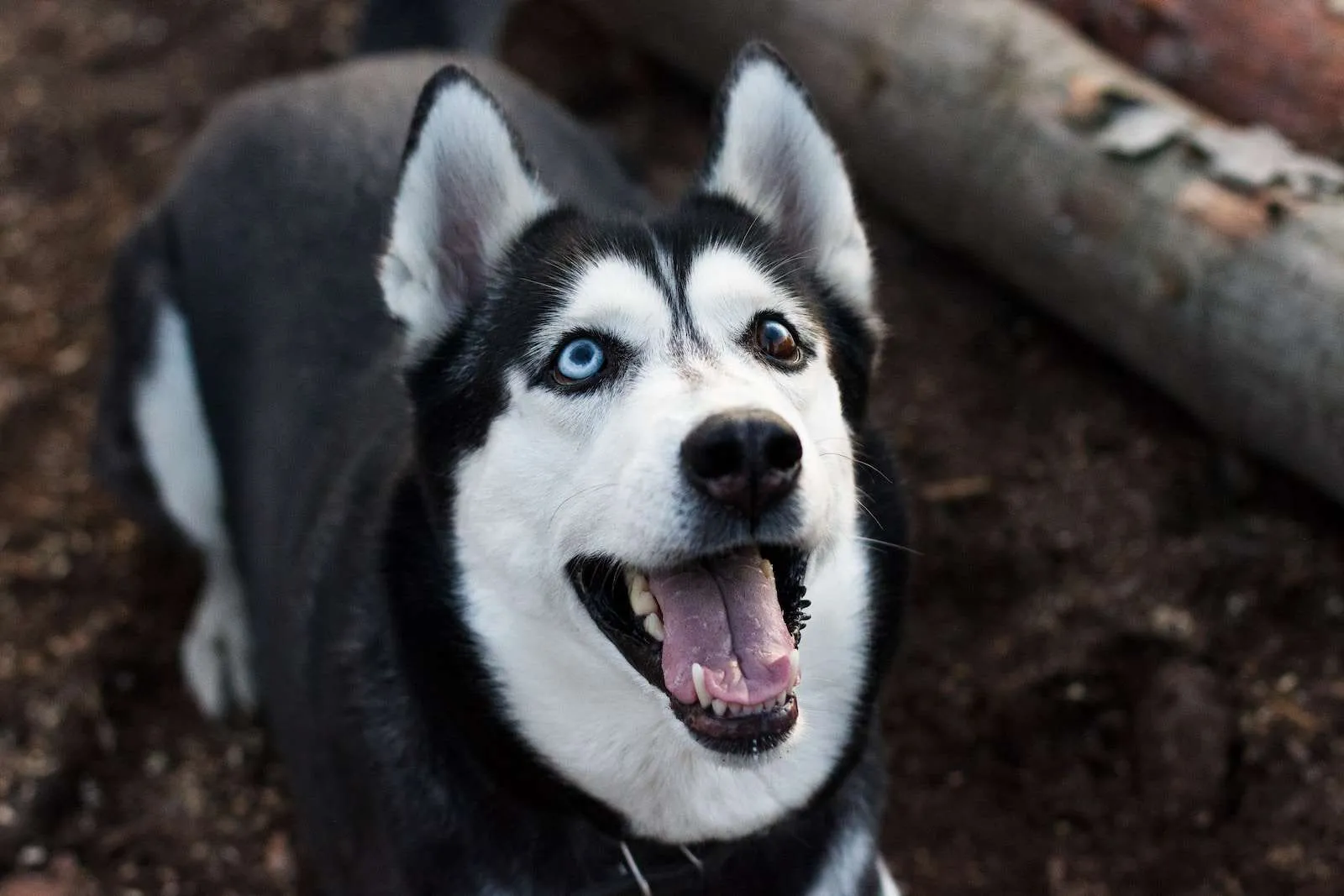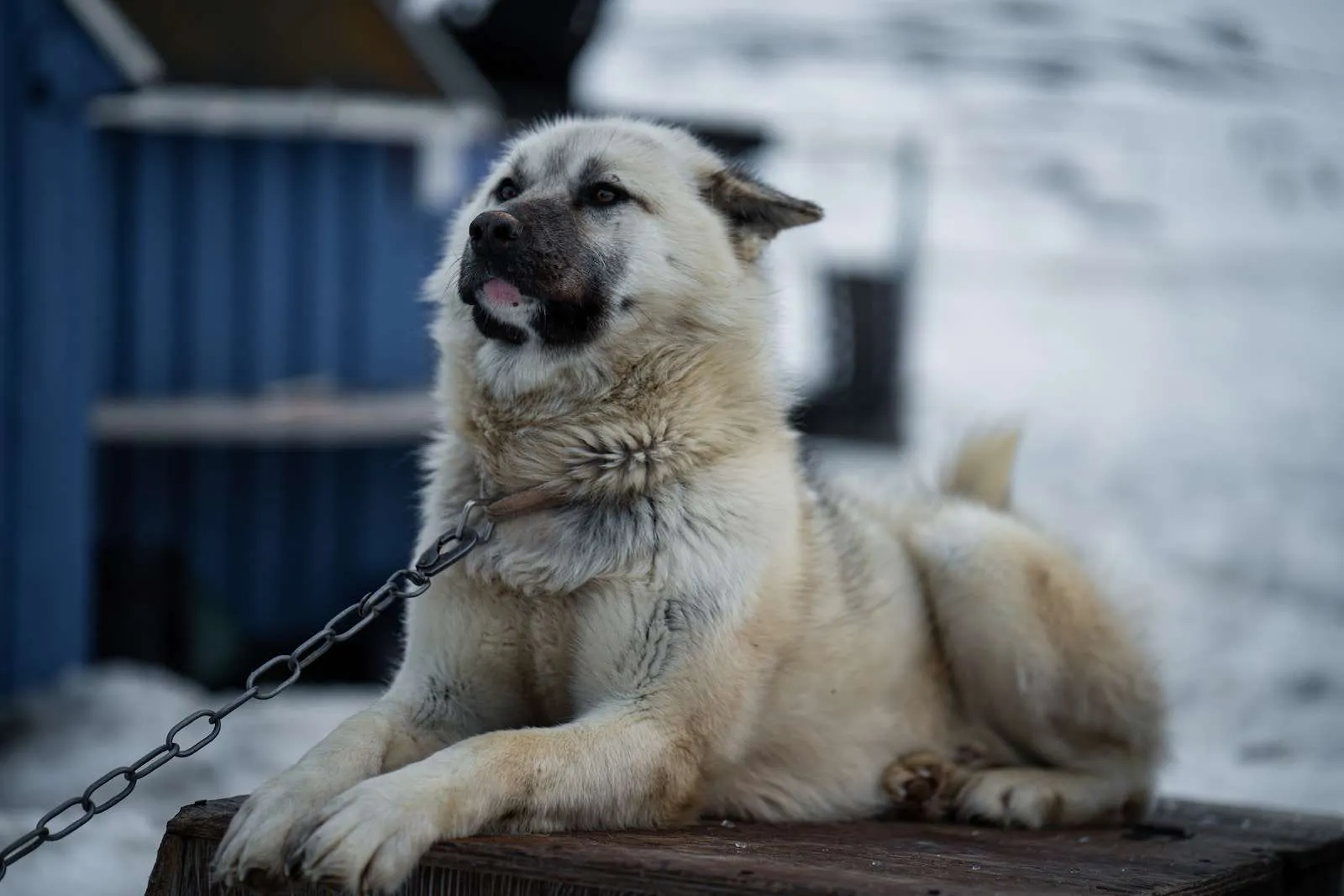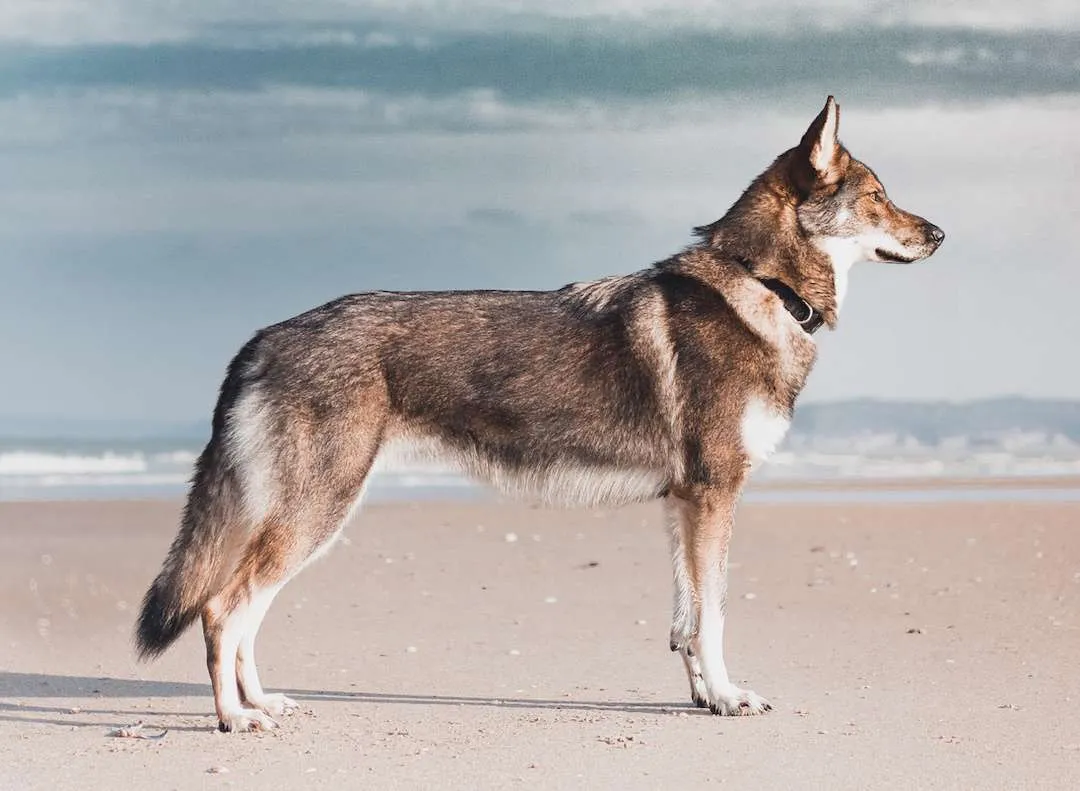Statistics:
- Height: 20 to 23.5 inches (males), 20 to 22 inches (females)
- Weight: 45 to 60 pounds (males), 35 to 50 pounds (females)
- Life Span: 12 to 15 years
- Diet: High-quality dog food, including a balanced mix of protein, fat, and essential nutrients.
Siberian Husky Overview:
The Siberian Husky is a striking and energetic breed renowned for its wolf-like appearance and impressive sled-pulling abilities. Originating in the harsh Siberian Arctic, this breed has been historically utilized as sled dogs by the indigenous Chukchi people to transport goods and navigate vast snowy terrains. Their ability to work tirelessly in freezing temperatures while maintaining a friendly and gentle demeanor has earned them recognition as excellent companions and working dogs.
Siberian Husky Highlights:
- Beautiful Appearance: With their thick double coat, erect triangular ears, and striking eyes, Siberian Huskies possess a unique and captivating appearance.
- Friendly and Sociable: Siberian Huskies are known for their friendly and sociable nature, making them good family pets and great with children.
- Exceptional Endurance: Their stamina and endurance are unmatched, and they excel in activities like dog sledding and mushing.
Siberian Husky Evolution and History:
The Siberian Husky’s origins can be traced back thousands of years to the Chukchi people of northeastern Siberia. These dogs were bred to be hardy and efficient sled dogs, capable of pulling heavy loads over long distances. Their work ethic, coupled with their gentle and friendly disposition, made them cherished members of the Chukchi community. In the early 20th century, Siberian Huskies were brought to Alaska, where they gained popularity as sled dogs in racing and exploration expeditions.
Siberian Husky Size and Weight:
Siberian Huskies are medium-sized dogs. Males typically stand between 20 to 23.5 inches at the shoulder and weigh around 45 to 60 pounds, while females are slightly smaller, standing between 20 to 22 inches and weighing approximately 35 to 50 pounds.
Siberian Husky Personality:
Siberian Huskies are known for their friendly and outgoing nature. They are sociable dogs that thrive on companionship and enjoy being part of a family.
The Adaptability of the Siberian Husky:
Siberian Huskies are adaptable dogs, but they do best in colder climates due to their thick coats and working heritage.
Siberian Husky Temperament:
Siberian Huskies are intelligent and independent, which can sometimes make them a bit stubborn. They have a mischievous streak and may exhibit some escape artist tendencies if not provided with enough mental and physical stimulation.
Siberian Husky Maintenance and Grooming:
Siberian Huskies have a dense double coat that requires regular brushing to minimize shedding and keep their fur in good condition.
The Trainability of the Siberian Husky:
Siberian Huskies are intelligent but can be independent and strong-willed. Training should be firm, consistent, and reward-based.
Exercise Needs of the Siberian Husky:
As a highly active and energetic breed, Siberian Huskies require ample daily exercise to keep them physically and mentally engaged.
Siberian Husky Health:
- Hip Dysplasia: A common hereditary condition affecting the hip joints, leading to pain and mobility issues.
- Eye Conditions: Siberian Huskies are prone to eye conditions such as cataracts and progressive retinal atrophy (PRA).
- Hypothyroidism: A hormonal disorder affecting the thyroid gland, which can lead to weight gain and lethargy.
Siberian Husky Care:
Regular veterinary check-ups, a balanced diet, and an active lifestyle are crucial for the well-being of Siberian Huskies.
Siberian Husky Feeding:
A high-quality, nutritionally balanced diet is essential to meet the energy needs of Siberian Huskies.
Siberian Husky Coat Color and Grooming:
Siberian Huskies can come in a variety of coat colors and patterns, including black, gray, red, and white. Their thick double coat requires regular grooming to keep it free from mats and tangles.
Siberian Husky and Children:
Siberian Huskies are generally good with children, but early socialization is crucial to ensure a harmonious relationship.
Siberian Husky and Other Pets:
Siberian Huskies can get along well with other dogs and animals, especially if they are raised together from a young age.
Similar Dogs:
- Alaskan Malamute: Both breeds are Arctic sled dogs with a similar history and appearance, known for their strength and endurance.
- Samoyed: Like Siberian Huskies, Samoyeds have a friendly and sociable nature, making them good family pets. They also share a striking white coat and history as Arctic working dogs.


